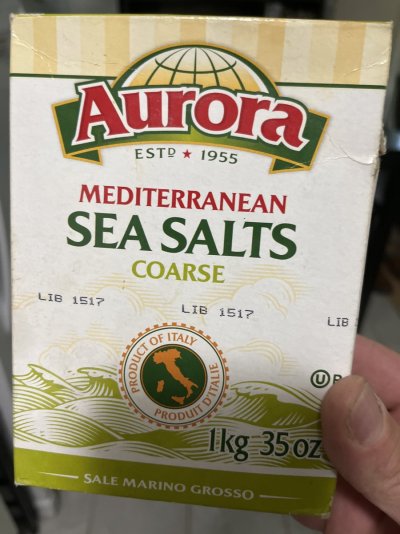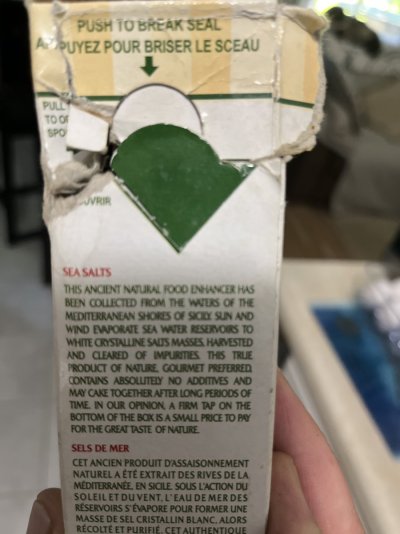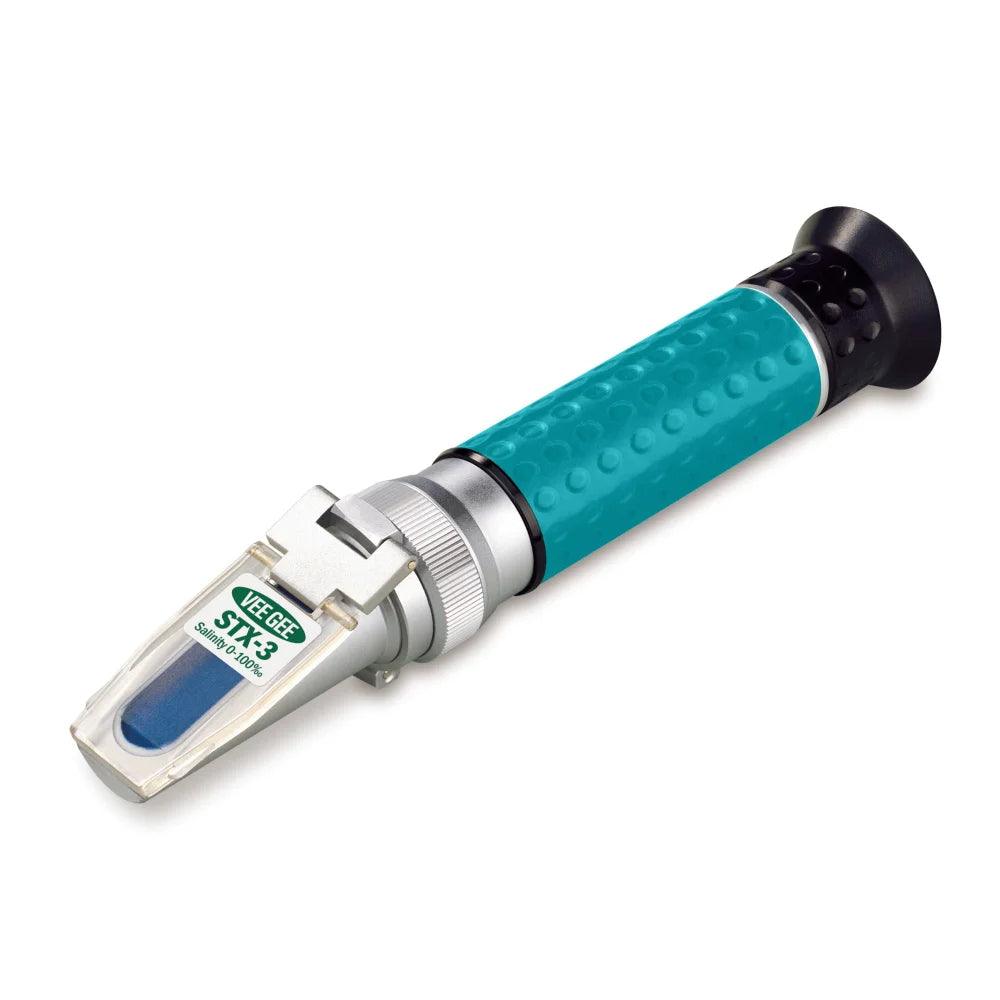It is interesting that Randy specifically mentions "Morton's Iodized Salt" but my unsubstantiated guess is that he's comfortable enough with that and didn't want to worry about people trying OTHER common salts on the market that could potentially have other ingredients/impurities/etc... but I don't know anything for sure.Does it matter if it’s iodized table salt or sea salt ?
One puzzling thing to me is that, for EC (conductivity) standard, he notes 3.29% but that's salt to total (salt + water) so:
salt = 0.0329(salt + freshwater)
Seems easier to simplify and deal with:
salt = 0.034 x freshwater
*unless I totally just misinterpreted everything and it happened to work out for me anyway





















